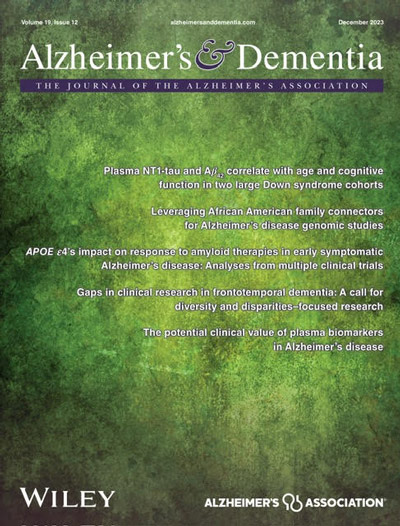Efficacy of Communication Bridge-2 for primary progressive aphasia: A randomized controlled trial of communication intervention
Abstract
INTRODUCTION
Primary progressive aphasia (PPA), a language-based neurodegenerative dementia, negatively impacts communication and quality of life. Previous non-pharmacologic interventions show promise but lack efficacy trials. Here, outcomes are provided from Communication Bridge-2 (CB2), a speech-language randomized controlled trial (RCT) for PPA.
METHODS
CB2 is the first Phase 2, Stage II, parallel-group RCT delivered via video chat with global enrollment. Ninety-five dyads were randomized into one of two speech-language intervention arms. Primary outcomes included communication confidence and participation measures. Marginal linear models assessed efficacy across ≈12 months.
RESULTS
Ninety-five dyads were randomized from four countries. Experimental arm superiority in communication-participation measurement of goal attainment was demonstrated (66.7% vs 49.1%, respectively, p = 0.006), and corroborated by post-study interviews.
DISCUSSION
Outcomes demonstrate the feasibility and initial efficacy of a person-centered telemedicine intervention for maximizing communication participation for mild-to-moderate PPA, providing a pathway for developing and implementing clinically meaningful interventions for Alzheimer's disease and related dementias.
Highlights
- Primary progressive aphasia (PPA) negatively impacts communication participation.
- Communication Bridge-2 (CB2) is a telemedicine-delivered randomized controlled trial (RCT).
- Global recruitment of 95 PPA participant dyads into an RCT with low dropout.
- First international superiority trial for PPA using video chat shows efficacy.
- The study provides a model for rigorous non-pharmacologic trials for Alzheimer's disease/Alzheimer's disease and related dementias (AD/ADRD).


 求助内容:
求助内容: 应助结果提醒方式:
应助结果提醒方式:


